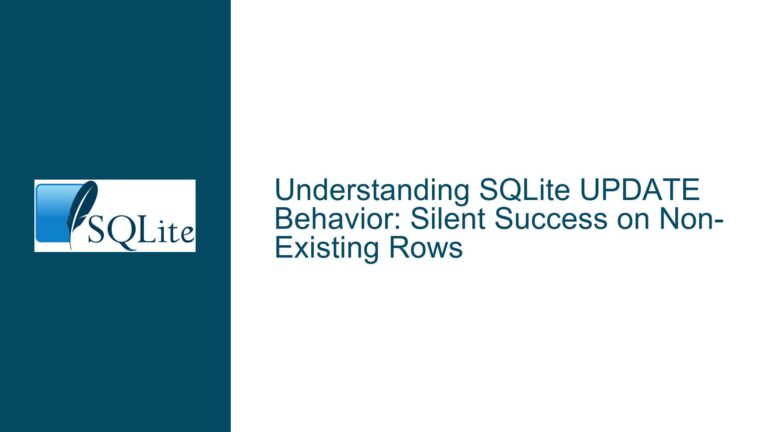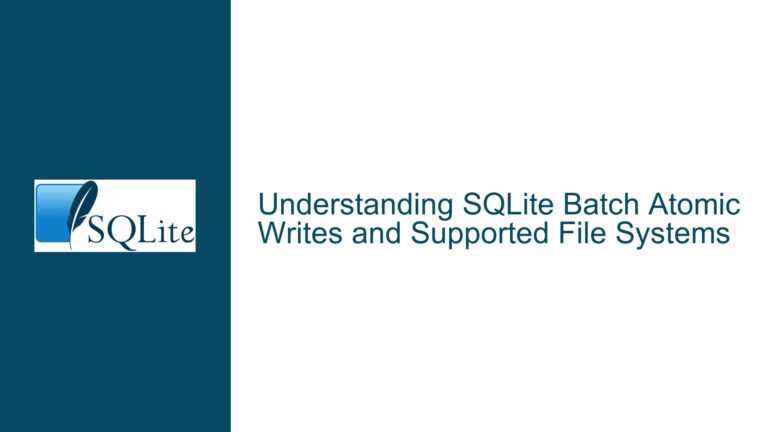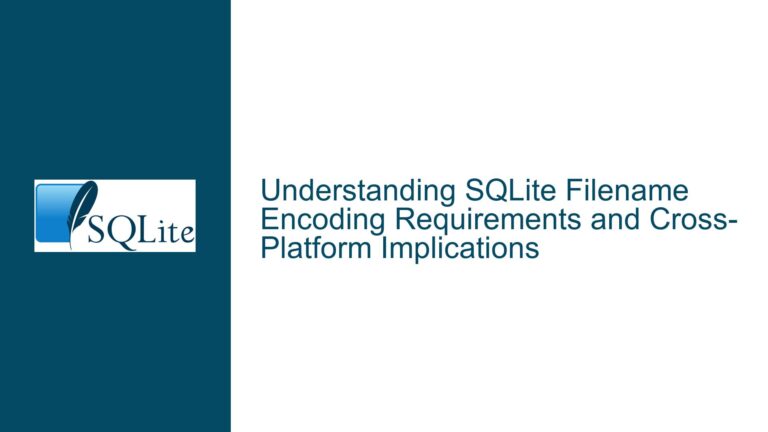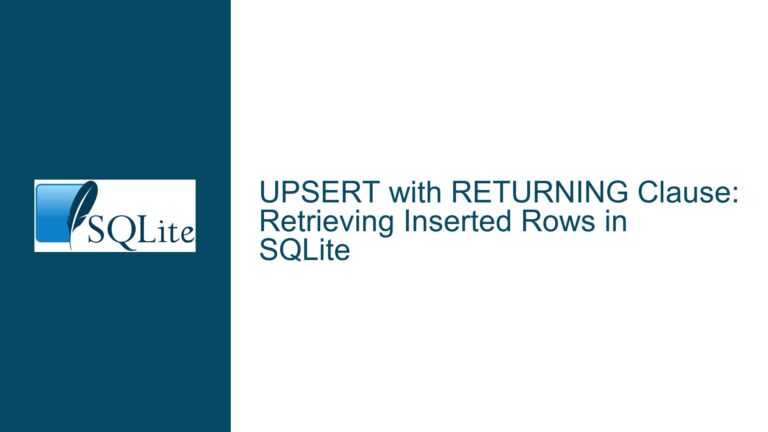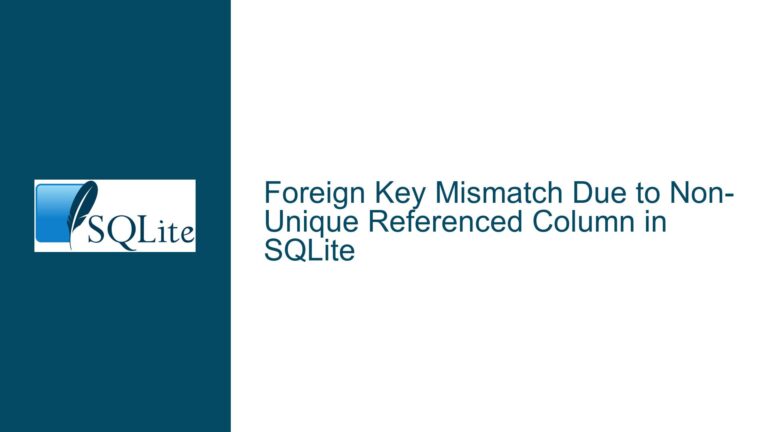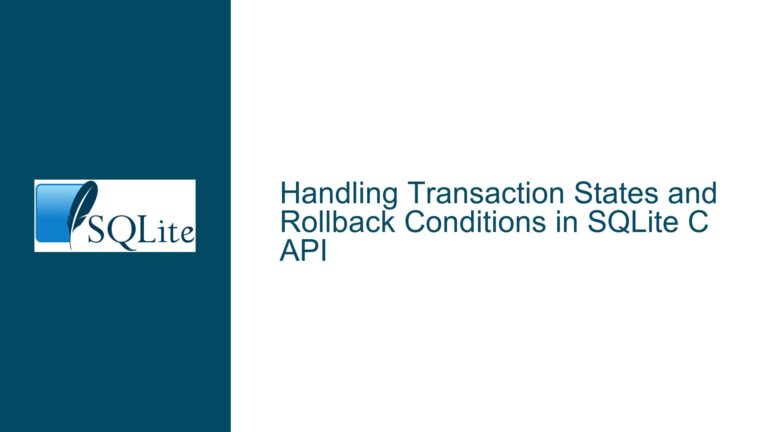SQLite UPDATE Behavior: Silent Success on Non-Existing Rows
Issue Overview: Silent Success When Updating Non-Existing Rows In SQLite, executing an UPDATE statement on a table where the WHERE clause does not match any rows does not result in an error. Instead, the operation completes successfully without modifying any data. This behavior can be surprising, especially for developers coming from a procedural programming background,…
